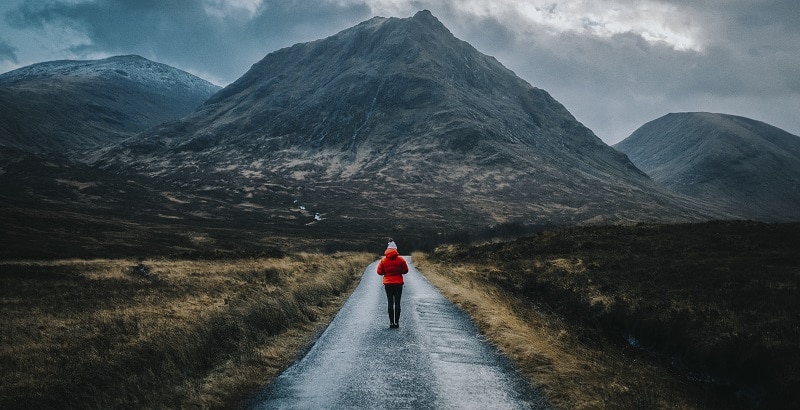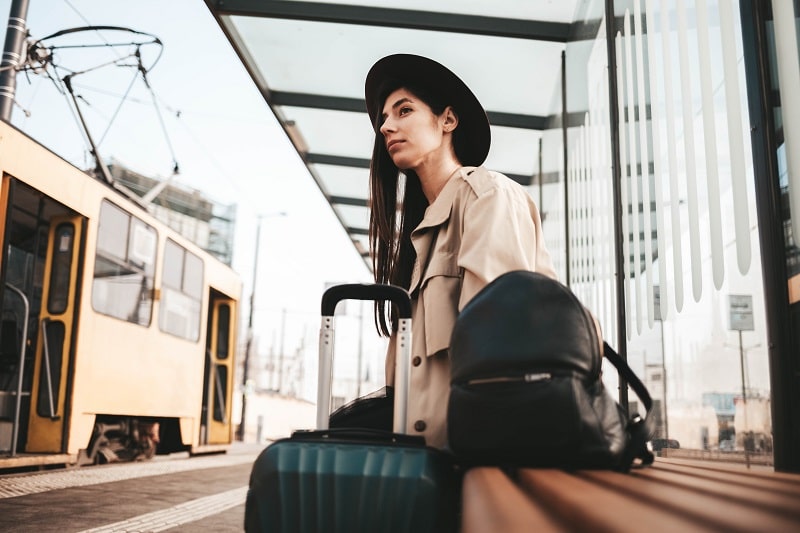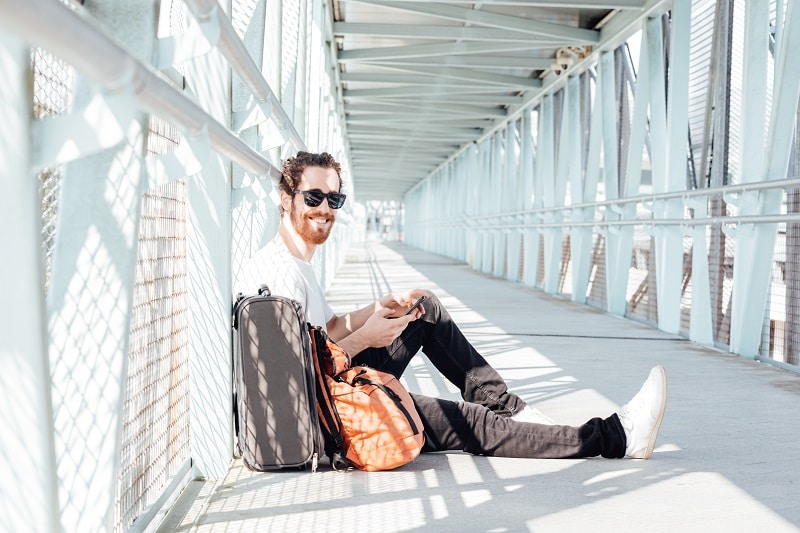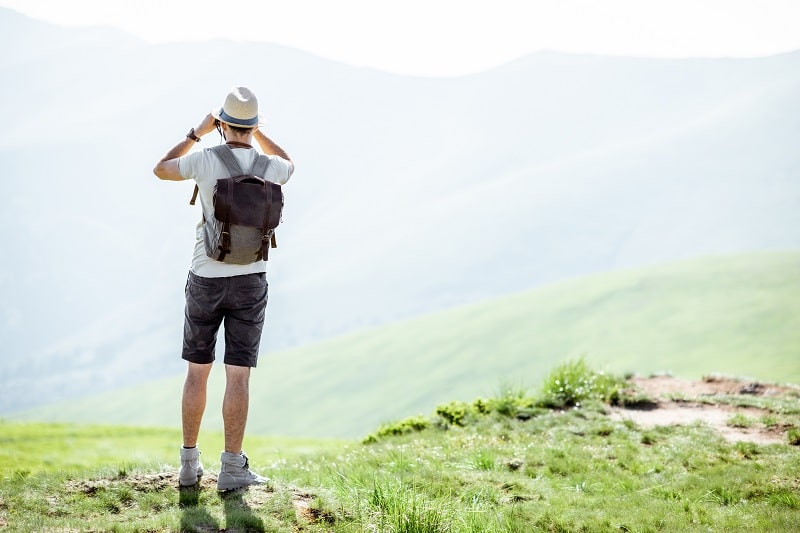Maybe you’ve been thinking about your dream trip for a long time, but you never manage to match your dates with those of your friends. Or perhaps they are not as excited about it as you are. Or maybe you are open to other proposals, but it seems impossible to agree on the destination.
If you keep going like this, it will probably be years before you get it if you make it. Either you take matters into your own hands, or it will be too late.

Have you Ever Considered Traveling Alone?
Maybe if you haven’t, your first answer to this question is, “No, I don’t want to travel alone because I’ll end up bored or feeling too lonely.” If you think so, read on.
Traveling alone is an excellent way to get distracted and inspired to create some exciting projects. One prime example is creating a conclusion generator. One American writer decided to take a solo road trip through Europe to be inspired to write a new novel. When he met a group of students in one of the European capitals, he realized that the students had a problem writing conclusions, so he had the idea of creating an instrument to help with this challenging task. As you can see, traveling alone is not just a method of recreation but also a way to inspire innovative solutions.

In this article, we want to give you some keys that you can use to overcome your reluctance to travel alone and tips to make it easier for you to meet new people while you do it. And not only will they be beneficial for your travels, but you will also be able to apply them tomorrow in your day-to-day life.
In the end, I hope you’ll discover that traveling alone is like riding a roller coaster: it’s scary the first time, but once you’ve done it, you’ll never stop doing it again.
What are you Terrified of?
You probably haven’t taken the plunge yet because of several fears:
1. Fear of what people will say.
One of the main barriers is usually the image we will give to the people who know us: we have the idea that traveling alone is synonymous with defeat and personal failure.
If you think that society marginalizes those who have decided to travel, live, or undertake alone, use your empathy and put yourself in the shoes of the people around you.
What would you think if you have been dreaming for years of traveling to India but are unable to find a companion and one day you find out that an acquaintance of yours has gone alone, has met many friends there, and is already saving up to return next year? Would you feel sorry for him or, on the contrary, envious?
As I can imagine your answer, I can only remind you that one thing is what people say, and the other is what they think. That’s how social pressure works. Many people will admire your courage and envy your freedom even if they say otherwise if you travel alone.

2. Fear that Something Terrible will Happen to you.
Those moments when you are going to be alone are the safest: in the quietness of your room, in your train seat, or waiting at the airport. On all other occasions, if you take certain precautions, you won’t have any difficulties other than those you would have in the city or town where you live.
Think about it: when you leave your home to go somewhere, do you usually have any problems? Imagine now that instead of being you, you are from another country, and you are going to the same place by the same route. Would you encounter any new setbacks because you are a foreigner?
Of course not. Other countries are not necessarily more dangerous. Traveling alone in Spain is just as tricky as traveling alone in another country. If you inform yourself beforehand and avoid complicated places, you shouldn’t have any problems. If I compare my city with the safety I have experienced traveling to specific places in Asia, I should be afraid to even go to buy bread.
The fear of something terrible happening to you is an imaginary fear usually based not on your past experiences but your beliefs. In reality, it is not the possibility of something terrible happening to you that worries you. You simply believe that you are incapable of being alone.
3. Fear of not Knowing How to Cope
People have the habit of punishing themselves too much and rewarding themselves too little. When it is our turn to leave our comfort zone, we only see problems and catastrophes instead of opportunities and challenges. But the truth is that people wake up much more than you think once out of that zone. And that includes you. Human beings unconsciously seek resources from all sides, and if not, just ask the people who survive two weeks trapped in the rubble of an earthquake.

I propose an exercise: think for a moment about the good or exciting things you have experienced in your life, such as a new job, a date with a person you liked, the birth of a child, or the creation of your own company. Were you nervous?
Good things are always accompanied by fear because there is the possibility of failure, and the body uses that fear to give us the energy to prevent loss. Fear of failure is what gives people the motivation to avoid defeat.
That same energy will give you the strength to make yourself understood by the locals even if you don’t speak their language or to find a hostel at 3 am. And if you fail, remember that nowadays it is not like forty years ago: almost anywhere you go you will find someone who speaks a little English, a policeman who can help you or a place with the Internet to communicate.
You can’t decide whether you get nervous, but you can choose how you use the energy your nerves give you. Use it to keep moving.
4. Fear of Feeling Alone
I want to clarify that feeling alone is not the same as being alone.
If you stood in the middle of a city and everyone around you was in a couple or a group, you would have real reasons to feel lonely. But this is never the case, so you will leave the feeling of loneliness behind when you leave the place where you are staying in the morning.
Traveling as a couple or in a group can be much lonelier than traveling independently. It practically ties you down to having to continually interact with your companions so that you don’t seem to be leaving them behind. In that situation, it is perfectly possible to return from your trip without meeting anyone.
But what many people don’t realize is that, although they start alone, they are rarely going to be like this. When you find yourself alone, say in the middle of Bangkok, you will absorb everything in your environment, needing to talk to people, socialize and communicate. No matter how introverted you are.
I’m sure there are things you hate to do alone, such as dining out or going to the movies, and others that you don’t feel anxious about or even enjoy, such as walking or visiting museums. The key is to try to do more things in the second category than in the first, so you’ll notice less loneliness.
Since the fear of feeling lonely is the only one of the four that I consider having real and not imaginary foundations, let’s look at some ways to make friends on your trip.
How to Meet People Taveling Alone
First of all, I’m going to bust a myth: meeting people while traveling alone, especially abroad, is much easier than meeting people in a company. And not precisely thanks to you, but thanks to the people around you.
People find it less difficult to approach you alone because you are much more accessible. The bigger a group is, the more embarrassed or afraid we are to approach it. So please, if someone comes to talk to you, don’t make a face.
When someone finds out that you are alone, they are more concerned about you. That’s because of your apparent unprotected situation. They will treat you better, take more interest in you and invite you to meet their friends. It’s easier to meet people this way.
Conversations are much deeper. Being alone, a simple “Where are you headed?” sitting at the train station can turn into a travel companion and a lifelong friendship. Conversations with people we think we’ll never see again are much deeper than with friends. The belief that the information you exchange will never make it all the way home frees you to open your heart wider.
It’s so easy to meet people traveling alone that I’ve often tried to run away from others 😉.

Why People Will Want to Meet You
Surely your mother, like mine, told you never to talk to strangers. I have to tell you that certain popular sayings like this, while well-intentioned, have done quite a bit of damage to the social development of many people.
Perhaps you unconsciously believe that if you approach a stranger to talk to them, you will annoy them when the reality is just the opposite. Although someone may not want to talk to you because they’ve had a bad day, I’d bet you a dinner that you’re unlikely to bother them for two reasons:
· We almost always want to meet people in the same circumstances. Humans are like that: we like what looks like us. When you backpack around the world, you meet travelers with a similar way of understanding life and who have probably decided to travel alone for the same reasons as you.
· For the locals, you are something out of the ordinary. You probably don’t want to meet your neighbor as much as a person who comes from another country and can infect you with his interest and make you see your usual environment differently.
However, people often shy away from approaching a stranger. Most of the advice you will find says to start with a comment about the weather or asking for directions. I radically disagree: people will realize that you were hiding your real intentions, and you’ll have a harder time taking the conversation where you want it to go. Also, being honest at the beginning of any encounter can greatly condition the values on which that relationship will be based.














